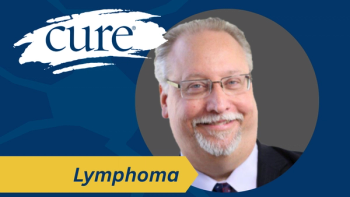
Insight on Novel Therapies in Follicular Lymphoma
Transcript:
Parameswaran Venugopal, M.D.: You know follicular lymphoma, low-grade follicular lymphoma, has truly become a chronic disease. You can keep it under control and maintain the patient’s quality of life. But unfortunately the disease has a tendency to come back, as Gerry was alluding to. And of course the good thing is that there are newer treatments, which work in totally different ways, so that every time it comes back there is something different we can do, which, again, controls the disease.
Gerry mentioned something, that it’s not curable. Well, follicular lymphoma, low-grade follicular lymphoma, is considered not curable except with a treatment called stem cell transplantation. And that, too, should be a donor transplant, a transplant from a donor. Now, you may ask why that is not being done more commonly? The main reason is, first, of course you have to get an appropriate donor. And even if you get a donor, allogeneic stem cell transplantation is associated with significant risk in terms of even dying from the procedure, and also, long-term morbidity, which means the patients can have reactions that can last very long, like graph versus host disease. If you’re taking medications for a long time just across the immune system, there are short-term and long-term side effects from that procedure. And typically for that procedure you have to be in the hospital for at least one month to get intensive chemotherapy and sometimes radiation. So because it is so intense and is associated with potential for including mortality, that’s the reason why nowadays, particularly with the advent of new medications, we do not recommend stem cell transplantation in the first or second line, or even in the third line. But that certainly is a treatment option, which is considered standard of care.
The other treatment option for the future is something called CAR-T, which stands for chimeric antigen receptor T-cell therapy. In simple words, you know we all have lymphocytes in our body. There are B lymphocytes and T lymphocytes. And the T lymphocytes in our body are supposed to eliminate the bad cells from our body. It is part of our immune system. What happens is cancer cells find ways of avoiding the attack by T cells. So now there are methods by which you can take the patient’s normal T cells from the blood and train it, manipulate it genetically and put it back into the patient so that those T cells, which are the patient’s own T cells, circulate and find the cancer cells and kill them, one by one. And they stay there. They keep killing them like a serial killer.
So this is called CAR-T therapy, which is probably going to be the most fascinating treatment. It’s FDA approved only in another type of lymphoma. But in follicular lymphoma, it is not yet approved. There’s a good possibility in the future that disease also will be included. So that certainly is exciting if you don’t need to do any medication or chemotherapy, and you just train your own cells to treat the cancer.
Have you heard about that?
Gerald Koch: I have heard about that. You told me about that several months ago. That would be great. Very promising.
Parameswaran Venugopal, M.D.: Right, absolutely. The other group of treatment options I want to mention is like the treatment you are getting, Gerry. You combine one pathway with a drug that is attacking another pathway. As you can imagine, if you have a cancer cell, it may be depending on more than one pathway to survive. We may be attacking just one pathway with one drug, and if you combine it with a different drug, you may be able to cut down both the pathways, and the cancer cell kill will be even better.
So those are trials that are going on, combining drugs like what Gerry is getting along with other drugs, which increases the likelihood of putting patients into remission, keeping them in longer remission, which is, in other words, cure. So there’s a lot of hope, and we need to be educated. The physicians, providers and the patients need to be educated and should be aware of these changes, so that we can apply that and give the opportunity to the patient to get the best care.
With that, I’ll stop here. I want to thank Gerry and my colleague Jennifer for coming and participating in this program. And, of course, I want to thank the CURE Expert ConnectionsÒ program for organizing this. This is absolutely a wonderful program for educating the patient. And as I said again and again, informing the patient about the options of treatment and educating them is the best way we can help take care of their disease. Thank you.
Transcript Edited for Clarity




